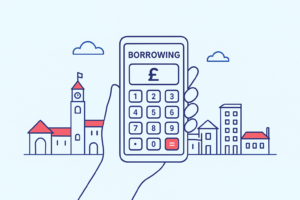How Key Person Insurance Works (and Why Every Small Business Should Have It)
Discover how key person insurance works and why every small business in the UK should have business protection insurance. Learn how to safeguard your company from the financial impact of losing a key employee with expert advice from Fosters Financial.

Practical guidance for UK small businesses on protecting revenue, covering debts, and supporting continuity when a key employee is lost or unable to work.
What is key person insurance?
Key person insurance (sometimes called key man insurance) is a form of business protection taken out by a company to provide funds if an employee who’s critical to the business dies or is unable to work due to a long-term illness. That “key person” could be a founder, sales director, technical specialist, or anyone whose absence would hit revenue, grant funding, or customer confidence.
In the UK, many small businesses rely on a handful of people. If one of them is suddenly unavailable, the financial fallout can be significant — and key person cover is designed to reduce that risk.
How does key person insurance work?
Step 1 — The business identifies the key person
The company determines which person (or people) are “key” based on their skills, client relationships, or ability to generate income.
Step 2 — The company buys the policy
The business takes out the insurance policy and pays the premiums — it’s the policyholder. Policies can be term life, critical illness cover, or a combination that includes long-term incapacity benefits.
Step 3 — The policy pays out to the business
If the insured event (death, terminal illness, or long-term incapacity) happens, the insurer pays the agreed benefit to the business. That money can be used to cover lost profits, recruit or train a replacement, pay off loans, or stabilise cash flow while the company adjusts.
What can the payout be used for?
- Replace lost profits: Short-term revenue falls as clients wait or contracts are delayed.
- Recruit and train a replacement: Hiring costs, agency fees, and onboarding.
- Repay loans: Lenders sometimes require protection on business loans tied to a director’s role.
- Maintain credit lines: Keep suppliers and creditors confident while you reorganise.
How you use the payout is up to you — the important point is that the cash is immediately available to protect the business when it is most vulnerable.
Types of key person cover
- Term life insurance — pays a lump sum on the death of the insured within the policy term.
- Critical illness cover — pays on diagnosis of a specified serious illness.
- Income protection / permanent health — pays a regular benefit if the key person can’t work for a long period.
- Hybrid policies — combine elements above to match business needs.
Who should consider key person insurance?
Key person insurance is particularly important for:
- Small businesses and startups where a few people generate most of the revenue
- Companies with directors personally providing essential services or client relationships
- Businesses with bank debt or investor funding that could be jeopardised by the loss of a leader
If you run a small firm in Colchester or elsewhere in the UK, ask: what would happen to revenue, cashflow, and contracts if X couldn’t work? If the answer is “we’d be in trouble”, that’s a strong signal to act.
How much does key person insurance cost?
Costs vary depending on the insured person’s age, health, occupation, and the amount of coverage required. Policies are priced by insurers based on risk and the requested sum assured. A clear business case — showing how the payout would be used — helps advisers recommend the right level of cover cost-effectively.
Tax and accounting treatment
Tax rules can be complex. In many cases, premiums aren’t tax-deductible because the policy benefits the company rather than generating taxable income. Payouts may be tax-free or taxable, depending on the structure and use. Always seek tailored advice from an accountant and your financial adviser.
Alternatives & complementary options
Key person insurance is one tool in a broader business protection plan. Consider:
- Shareholder protection (to fund buy-sell agreements)
- Loan protection (to cover specific liabilities tied to a person)
- Business continuity and succession planning (to reduce dependency on a single individual)
Combining measures gives the most robust protection for a small business.
How Fosters Financial helps small businesses
We work with local businesses to:
- Identify the true financial impact of losing a key person
- Recommend the right type and level of key person insurance UK policies
- Structure cover alongside other business protection insurance for small business needs
- Liaise with insurers and accountants to ensure tax-efficient and practical outcomes
Ready to protect your business?
If you’re a small business owner asking, “What happens if my most important person can’t work?” we can help you model the financial impact and put a protection plan in place.
Useful links & further reading



